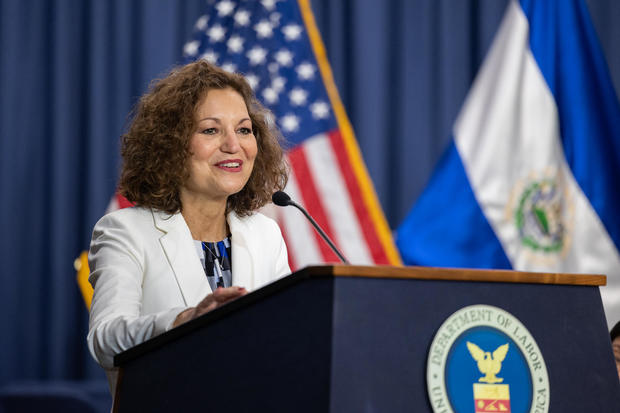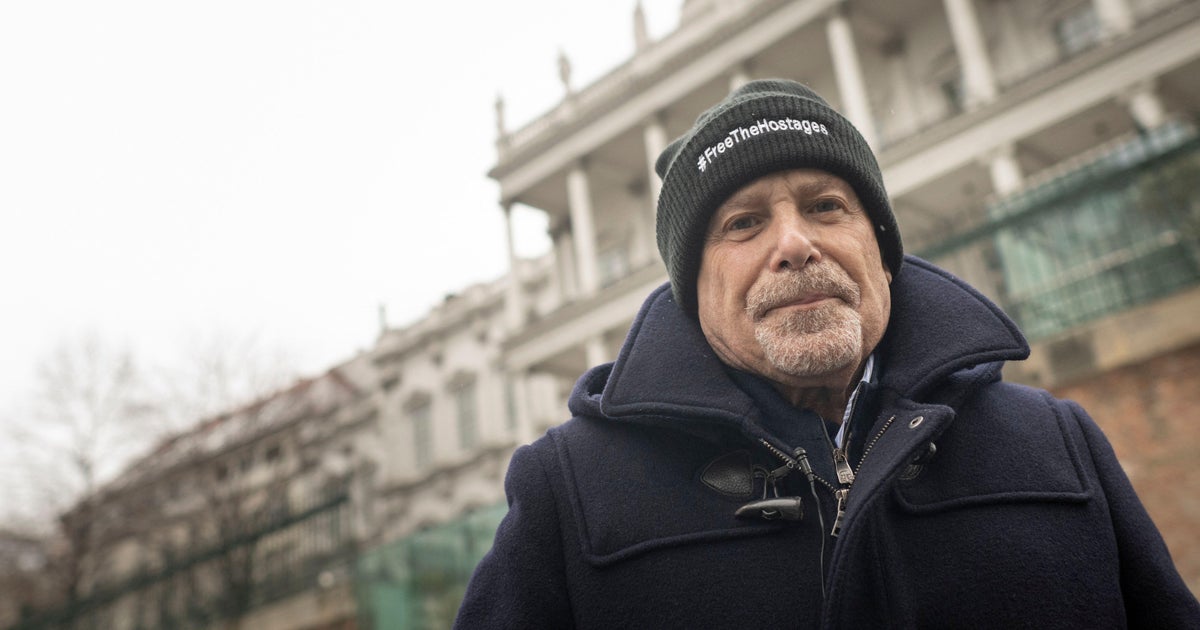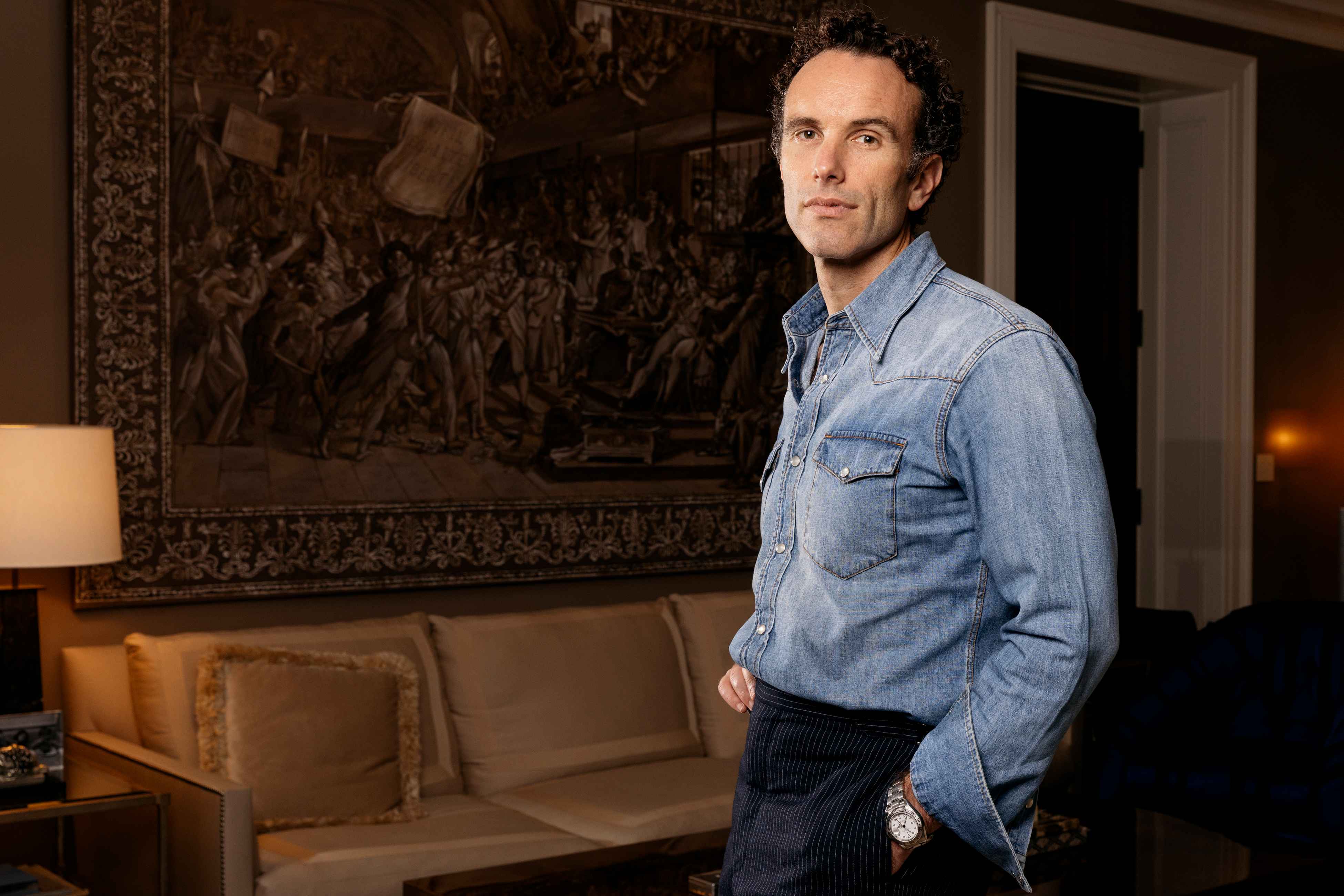Government's top labor lawyer: Workers need to know we'll protect them
When former Amazon worker Chris Small recounted his experience leading the first successful union campaign at the online retailer earlier this year, the government's top labor lawyer was listening — and dismayed by what she heard.
"I was frustrated to hear that one of the greatest obstacles he faced was convincing his scared co-workers" that they would not lose their jobs if they joined the effort to unionize workers at an Amazon warehouse on Staten Island, New York, Jennifer Abruzzo, general counsel at the National Labor Relations Board, told CBS MoneyWatch. "We need to do a better job of educating workers that they cannot be retaliated against by their employers for engaging in union activities."
Although few Americans may have heard of Abruzzo, she is playing an instrumental role in mediating the ever-shifting balance of power between millions of workers and their employers. As the top lawyer at the NLRB — an independent federal agency charged with enforcing the nation's labor laws, including the right of private workers to join a union — she has moved quickly to tilt that balance back toward employees.
"Workers are feeling more empowered to engage with their employers, whether it's through unions or not, to address issues they see at the workplace, whether it's inadequate benefits or lack of opportunities," she said. "We've certainly seen a surge in workers filing election petitions, and we as an agency don't want to be an obstacle to those efforts."
A nearly 25-year veteran of the agency, which was created in 1935 to enforce the National Labor Relations Act, Abruzzo's first official memo to the NLRB's five-person board in August of 2021 set the tone by urging them to reconsider cases from the previous administration.
"Long story short, we are a neutral, independent federal agency that enforces a pro-worker statute, and I don't believe the Trump board majority kept that in mind," Abruzzo said.
Labor groups have long argued that the nation's labor laws lack teeth and exclude many workers, with any fines for employers small enough to be considered part of the cost of doing business.
By contrast, Abruzzo wants the NLRB to shore up worker protections by requiring employers found to have illegally fired employees not only to restore lost wages, but also to pick up the costs they incurred as a result of losing their job, such as getting a bank loan or making a 401(k) plan withdrawal.
"Our congressional mandate is to protect workers' rights, so we want to take them back to the place where they were before their rights were violated," she said. "Did they need to move, get training to find another job or incur medical expenses due to the loss of coverage?"
An end to "captive" meetings?
If Abruzzo's recommendations come to fruition, companies would have a far harder time refusing to recognize a union, much less stall or refuse to negotiate a contract. She is also proposing putting an end to "captive audience meetings," where workers are compelled to listen to anti-union arguments by managers.
"I would say in just about 90% of all cases where petitions have been filed and during the critical period to a board-supervised election, employers engage in captive audience meetings," Abruzzo said. "It is real and it is something that I think needs to be addressed at workplaces around the country."
She's also looking at the misclassification of workers as independent contractors, saying the practice by some companies strips many workers of their rights.
U.S. labor law bars companies from retaliating against employees for acting collectively to improve work conditions, including union organizing. Still, it's one thing for Americans to know they have a legal right and another to believe union activism won't put their livelihood at risk.
To that end, the NLRB has recently targeted an alleged clampdown by Starbucks on unionization efforts by baristas across the country. In response to a lawsuit filed by an NLRB regional director, a federal judge last week ordered the coffee-shop operator to reinstate seven employees who had been fired while leading a union campaign in Memphis, Tennessee.
Starbucks said it fired the workers for violating its safety and security policies and vowed to appeal the ruling.
"With the surge in organizing, we are seeing more unlawful employer actions to nip in the bud the organizing drives," said Abruzzo, listing surveillance and retaliation against workers as among the tactics companies use to quash pro-union activity.
The NLRB is pursuing the agency's biggest case load in years with the lowest staffing levels in six decades, according to Abruzzo, who called on Congress to increase the agency's shrunken budget. The Biden administration's budget for the next fiscal year includes $319.4 million for the NLRB, which would represent a 16% increase, according to the agency.
"I'd like to remind all those on the Hill that all of us, workers around the country, elected them," she said. "There are millions and millions of workers across this country, and our job is to protect their rights. They should be funding us appropriately."




